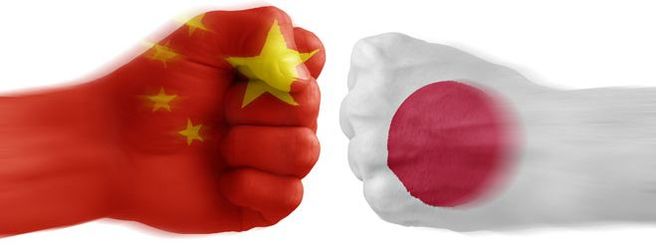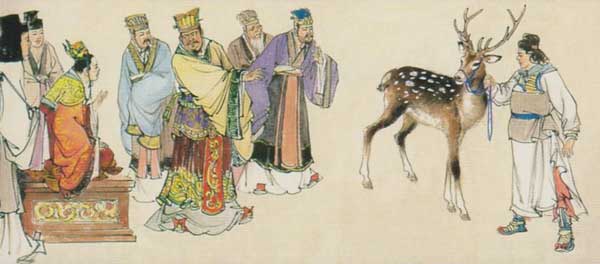It's not only dangerous to build an empire, its even more dangerous to give one away. This statement could well be McGregor’s main message. The Pax Americana has enabled the region to grow peacefully during the last 70 years into an economic success, but a political disaster; a familiar perception which has also been discussed in Europe. The US supremacy has guaranteed not only in Far East Asia, but also in Western Europe for the peaceful frame conditions which enabled both regions to grow economically. But both regions failed to grow into mature political entities under the auspices of the US as parent surrogate. Europe had this unpleasant awakening in the Ukraine conflict with Russia; Japan’s awakening has been triggered by the Diaoyu/Senkaku Island confrontation and is reinforced by the new US president who would have liked to retreat military forces entirely from the region and is quoted saying: If we step back, Japan will defend itself very well. Hasn’t it won every battle against the Chinese so far?
Japan’s relationship to the US has changed during the last few years. It was deeply resentful about the US, about having lost the war and having been imposed a constitution. Secretary of State Henry Kissinger’s 1971 visit to China was a slap into its face and the 80ies trade war between the two countries is part of the negative collective memory. It nevertheless wants the US now to flash the sword and fend off China’s encroachment on hitherto regional stability. A weakened America, in particular one which suffers from a chaotic presidency provides though to China an opportunity to build its own political empire in the region. Large tender battles between the two nations about high speed railway projects are the tip of an iceberg of economic interests which hoover beneath the political sabre rattling.
Then there is the issue of the Japanese apology for war crimes and atrocities committed during WWII. There have been no joint declarations, no joint historical research process and therefore the bilateral history has neither been collectively nor individually digested despite 14-20 million victims. A joint historical review as done in Germany and France is needed Asking for an official apology from Japan and using the lack of such an apology gainst the neighbor country wasn't China’s policy for decades until the 80ies. Mao thanked Japan for invading China, because otherwise the communists wouldn’t have defeated the nationalists; and it's a historical fact that most fighting against Japanese forces was done by nationalists, not communists. That myth was introduced in the 90s by Jiang Zemin in the course of ramping up a patriotic education which mainly aimed at uniting the dissolving country against Japan.
China did never ask for official reparation payments from Japan and thinks it did Japan a favor thereby: we repaid cruelty with kindness. Japan on the contrary thinks that it never was thanked for the vast investments and infrastructure aid which has been poured into the country in particular in the 80s and 90s. Mutual resentment is deeply rooted, but above all, both countries have never managed to treat each other as equals; probably because they were never able to. China, stuck in its self-perception of cultural superiority, viewing Japan as just another vassal state in the all-under-heaven empire, and Japan in its weird Galapagos mentality believing very much like orthodox Jews to be the God chosen people.
McGregor thinks that China’s big failure in foreign policy is to not have befriended Japan since the GFC and drawn it away from the US. Similar to 17-20th century French foreign policy on continental Europe fearing a unification of German speaking people, the US were motivated in Far East Asia ever since WWII by keeping China and Japan apart. In a Pacific century the front line of Pax Americana runs therefore through Japan over South Korea down to Taiwan and the Philippines, and it is this fault line were we will see with some probability political and military eruption in the years to come.
Although the analogy wasn’t mentioned, I am pretty sure that McGregor would agree to compare the current political situation in Far East Asia to Europe before WWI. France and England saw the rise of Germany and thus a major shift in the balance of power which they were not able to contain. In the collective consciousness, in particular of the ruling elite, new found economic might translated into political arrogance, which led then to war. Henry Kissinger wrote in his 2014 book World Order that the rise of China creates a similar shift in the power balance regionally and globally.
Xi Jinping and Shinzo Abe are described by the author as having lots of similarities; both haven’t been stellar scholars to put it euphemistically, but both are men of action; both are members of the political elite and have their family roots in the Sino-Japanese war; their family history is intimately tied to national history; a fact which can not be overemphasized, because it is exponentially reinforced by the Confucian culture which is predominant in both countries: man is part of a family, and the families are the smallest units of the country. The concept of society or nation is alien to Confucius and have been first introduced to Japan by the West with China now following en suite re-building an entire civilization into a nation.
McGregor concludes that it will be difficult for president Xi to genuinely befriend Japan and put the past behind, because a good kick into Japan’s ass is the party’s best weapon to mobilize its masses. I believe, that Abe gets equally as much unifying fear out of the common enemy China. But considering the global dimension of pressing challenges ahead such as environmental degradation and increasing automation of labor markets, we really have to ask ourselves which solutions are available to get these two countries out of their past traumas and future fears to act jointly in the here and now. The author leaves this question sadly open; at least in his talk. Both nations and in particular it’s leaders are advised to look inside and spend some time on C.G. Jung who said: Everything that irritates us about others can lead us to an understanding of ourselves.


 RSS Feed
RSS Feed